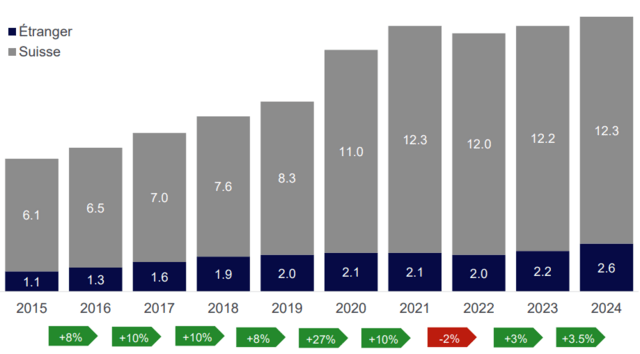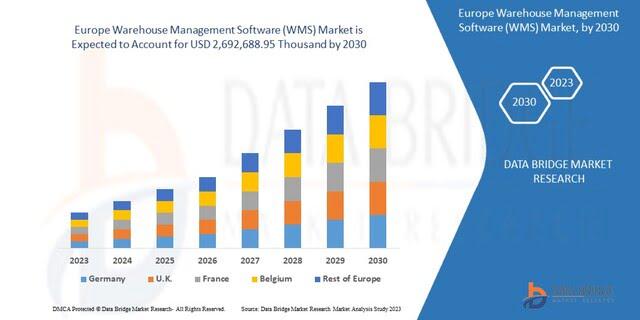Discover how a warehouse management system (WMS) can improve the customer experience and optimize the performance of your e-commerce site.
E-commerce: Beyond the Digital Storefront
Create a successful online store isn't just about careful design or offering a wide product catalog. The major challenge today is behind the scenes: order management. Poorly organized logistics leads to delays, inventory errors, and even abandoned carts.
This is where an often underestimated tool in the world of e-commerce comes in: the WMS (Warehouse Management System).
What is a WMS and why does your e-commerce site need one?
A WMS, or warehouse management system, is software designed to organize, track, and optimize all storage and order processing operations. Specifically, this e-commerce solution allows you to:
- Monitor stock levels in real time
- Manage product locations
- Optimize order fulfillment
- Streamline shipping
For an e-commerce site, this translates into fewer errors, faster logistics, and, above all, a more reliable and professional customer experience..

The concrete benefits of a WMS for e-commerce
Contrary to popular belief, a WMS is not reserved for large logistics companies. Even for SMEs, it brings immediate benefits:
- Automatic inventory updates: The WMS synchronizes your inventory in real time with your e-commerce site, preventing stockouts or oversales.
- Reduced order errors: No more packages with the wrong products. Thanks to rigorous management of locations and preparations, the risk of errors drops drastically.
- Faster shipping: Automated order processing is accelerated, reducing delivery times, a key criterion for customer loyalty.
- Improved customer satisfaction: A customer delivered quickly, with the right products, in a well-prepared package, is a satisfied customer. And a satisfied customer is a repeat customer..

The European warehouse management software (WMS) market is expected to reach a value of $2,692,688.95 thousand by 2030. Data Bridge Market
When does an e-commerce business need a WMS?
Here are some warning signs that you've reached the right time to integrate a WMS:
- Your website offers more than 100 product references
- You receive orders every day
- You sell on multiple channels (website, marketplace, social media)
- Inventory management is becoming a headache
- Your logistics costs are increasing faster than your revenue
- Delivery errors are impacting your online reputation
A warehouse management system allows you to remain agile while growing your business, without losing efficiency.
How to integrate a WMS into your e-commerce store?
Today, many WMSs offer ready-to-use integrations with major e-commerce platforms such as:
- Shopify – native integration
- WooCommerce – specialized plugins
- PrestaShop – dedicated modules
- Magento – advanced extensions
These e-commerce integrations allow automatic synchronization between your website and your logistics tool. Result: each order placed online is automatically transmitted to the WMS, which takes care of the rest (preparation, shipping, inventory updates, etc.).
If you use a CMS or custom development, it is also possible to integrate a WMS via a custom API.
The WMS API: a bridge between your e-commerce and your logistics
An API (Application Programming Interface) is a communication interface between two systems. In the case of e-commerce, it allows the WMS and your online store to communicate automatically and in real time.
Here's what this API connection can do:
- Automatically synchronize customer orders from your website to the WMS
- Track preparation and shipping status (e.g., in progress, shipped, delivered)
- Update inventory in real time between the WMS and the store (avoids stockouts)
- Manage product returns and reintegration into stock
- Centralize invoicing or logistics tracking data
An API integration is flexible, scalable, and future-proof. It adapts to your specific needs, whether you're a small business or a growing e-commerce player.
The WMS: a growth accelerator for your e-commerce
Logistics should no longer be seen as a technical constraint, but as a decisive competitive advantage. By integrating a WMS into your online store, you gain efficiency, reliability, and professionalism.
It's a strategic investment with a business impact that directly improves your online sales and your digital reputation.
Need an e-commerce site connected to your logistics?
Emaloja can assist you in creating your online store, with a customized integration of your WMS. Together, we'll give your project every chance of success in an increasingly demanding e-commerce world.
Why integrating a WMS into your e-commerce store boosts your sales?